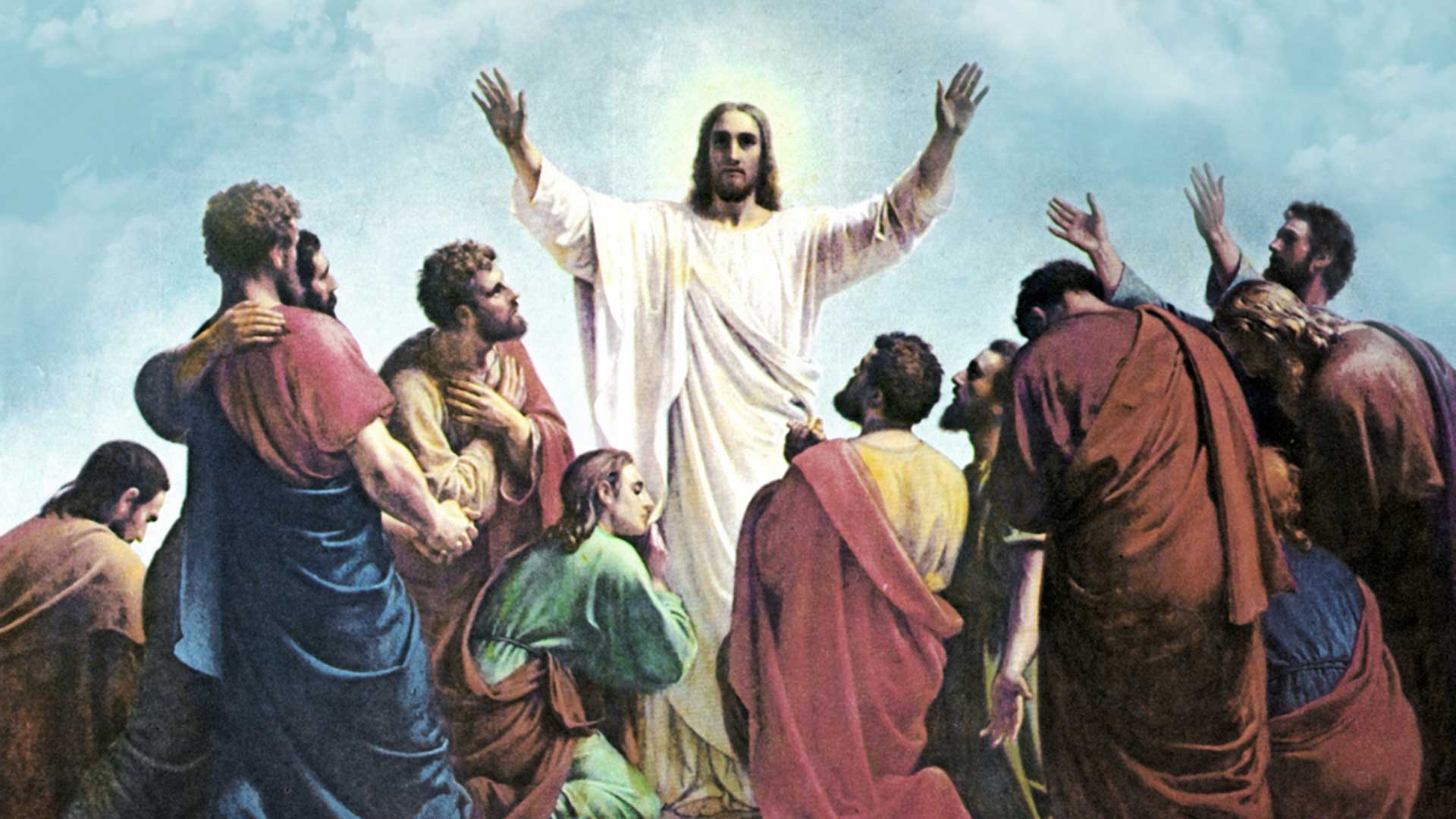
What is the difference between a volunteer and a disciple? Can a person be both a volunteer and a disciple? Does discipleship require volunteering?
God desires both volunteering and discipleship from us. When we understand the differences, we can begin to understand and embrace that discipleship is the next step on the road to holiness—a road we travel with God’s grace to help us.
What’s the difference?
It might be surprising to learn that many of us serve at a volunteer level more often than a discipleship level. While there’s nothing wrong with that, our Church and world need more from us. Anyone can be a volunteer and give some of their time, but discipleship goes much deeper.
The main distinction between a volunteer and a disciple is the driving force behind their actions: why are they doing it? Many times we volunteer under a sense of obligation because we know we should and choose to do so when we want to. When we disciple, we choose to serve God whenever he puts the opportunity in front of us. It becomes an action based on his time, not ours.
Discipleship is a way of life, a way of centering ourselves on God and others at all times. It can also mean walking with another person through the ups and downs of their journey and taking the time to develop a relationship with them.
A disciple’s actions are motivated by their love for God and desire to bring others closer to him. When a disciple meets a person who needs someone to walk with them on their journey to heaven, they joyfully and humbly choose to step into that role—it becomes a moment of self-giving where the disciple knows this could be a commitment longer than just an hour.
On the other hand, a volunteer is usually someone serving for a finite (usually shorter) amount of time. They might have good intentions, but without also being a disciple, more selfish or earthly desires may accompany their actions. The focus of the action may inadvertently go to themselves in a “look what I’m doing” sort of way. It’s a very human downfall anyone can find themselves in.
“People can volunteer for all sorts of reasons,” notes Dr. Chris Burgwald, director of discipleship formation for the diocese, “and we can sometimes become focused on the attention or recognition the work brings.”
Does that mean we shouldn’t volunteer? Absolutely not. Volunteering as an action does tend to be a major part of our lives as disciples. It’s a matter of aligning our intentions with those of God’s and listening to his promptings. Being a disciple is taking volunteerism to the next level—the level of pursuing holiness and pointing others to God.

Trusting God
In Matthew 28:19-20, Jesus gives the apostles (and all of us) the great commission:
“Go, therefore, and make disciples of all nations, baptizing them in the name of the Father, and of the Son, and of the holy Spirit, teaching them to observe all that I have commanded you.”
It’s important to understand what Jesus is asking of us here. He is not telling us to merely go out and volunteer two hours a week. He wants us to go out and spread the Good News.
“Jesus wants us to draw close to him, to enter into relationship with him, and to help others do the same,” Dr. Burgwald says. “While there are ways in which this can look like volunteering, it’s far more than that: it’s a response to his call and invitation.”
Many of us struggle with the idea of discipleship, but why? Ultimately it comes down to a lack of trust in our Lord, his plan for us, and how we fit into his plan for others. We like to feel like we have control over our time. And we like our comfort. Discipleship is not always as comfortable or easy as volunteering.
Dr. Burgwald says this is because of our desire for control. “When we volunteer, we are the one in charge. But when we follow Jesus as his disciple, we relinquish control (or try to!) and recognize him as the one in charge, as our Lord.”
Serve with your gifts
Typically, the way in which we serve as disciples will correlate to the gifts God has given us. You may hear gifts also referred to as charisms, and we all have at least one. If you are struggling to see how your gifts can be used as a disciple, Dr. Burgwald suggests talking with “those people in your life who know the spiritual life…who can speak into it,” and into your situation. That may be your spiritual director or a trusted friend, someone who knows your strengths and weaknesses.
Discipleship also doesn’t necessarily mean working in a ministry capacity. That means you don’t need to be a lector or a youth director or a priest in order to practice discipleship. Those are all great ways to give your time and talents to the Lord, but not everyone is called to serve in that capacity. A parishioner may serve on the Respect Life committee as a ministerial form of discipleship, and another parishioner may go pray at Planned Parenthood on their own as their act of discipleship. Both are essential parts of the Body of Christ.
Dr. Burgwald recalls an analogy for how we all are called to serve in the Church. God has a vineyard that he calls us all to tend, and “we’ve [each] got a plot in the vineyard…We should not worry about what other people’s plots look like.” The way you tend to your plot will probably look different than the plot of another, as will the plot itself.
Within the Lord’s vineyard, some plots may not be in the parish at all. Discipleship might actually take the form of an occupation, or serving the community as a whole. Or it might be as seemingly small as walking with a sibling through a difficult time in their lives that threatens to pull them away from God.
A way of life
Jesus wants us to lead happy, healthy, holy lives. Discipleship is our calling that allows us to lead that kind of life; it is a way of life that will always lead us down the path of holiness. Volunteering as a part of our journey of discipleship is a way to exercise our souls, helping us to become happy, healthy and holy.
Discipleship may seem like just another thing to add to our plates, another task to complete amongst the busyness of life, but it’s really a way of life. Dr. Burgwald points out, there is nothing God will ask of us that we can’t do “by his grace.” God will give us everything we need, so long as we are doing it for him.


